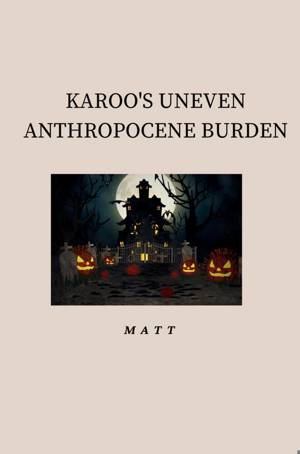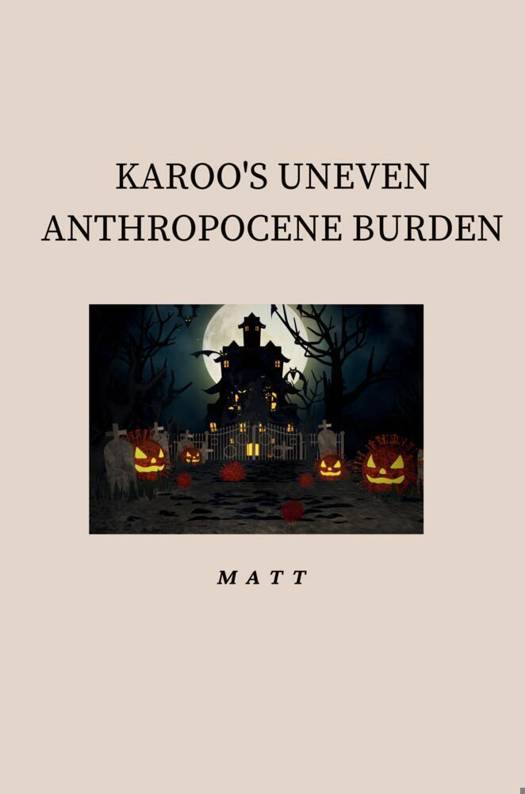
- Afhalen na 1 uur in een winkel met voorraad
- Gratis thuislevering in België vanaf € 30
- Ruim aanbod met 7 miljoen producten
- Afhalen na 1 uur in een winkel met voorraad
- Gratis thuislevering in België vanaf € 30
- Ruim aanbod met 7 miljoen producten
Zoeken
Omschrijving
Karoo's Uneven Anthropocene Burden: A Landscape Struggling to Adapt The Anthropocene, the epoch of human influence on the planet, casts a long shadow across the vast plains of South Africa's Karoo. This semi-arid region, once a haven for diverse ecosystems, now grapples with the uneven burden of human activity. Climate change, unsustainable resource extraction, and land degradation paint a stark picture of a landscape struggling to adapt. A Fragile Ecosystem Under Pressure: The Karoo is a land of stark beauty - a tapestry of arid plains, sculpted mountains, and unique biodiversity. However, this ecosystem is inherently fragile. Low rainfall and nutrient-poor soils create a delicate balance easily disrupted by human intervention. - Climate Change: Rising temperatures and erratic rainfall patterns pose a significant threat. Reduced precipitation intensifies droughts, impacting already limited water resources. Additionally, rising temperatures alter weather patterns, pushing some plant and animal species beyond their tolerance limits. - Unsustainable Agriculture: Overgrazing by livestock and inappropriate farming practices have led to soil erosion and desertification. Traditional grazing techniques, once adapted to the Karoo's carrying capacity, are no longer sustainable with increased livestock populations. - Resource Extraction: The Karoo holds vast reserves of minerals and fossil fuels. Mining and fracking activities contribute to environmental damage, water pollution, and habitat fragmentation. The economic benefits of these activities often come at a high cost to the ecological health of the region.
Specificaties
Betrokkenen
- Auteur(s):
- Uitgeverij:
Inhoud
- Aantal bladzijden:
- 76
- Taal:
- Engels
Eigenschappen
- Productcode (EAN):
- 9783384221094
- Verschijningsdatum:
- 7/05/2024
- Uitvoering:
- Paperback
- Formaat:
- Trade paperback (VS)
- Afmetingen:
- 152 mm x 229 mm
- Gewicht:
- 122 g

Alleen bij Standaard Boekhandel
+ 51 punten op je klantenkaart van Standaard Boekhandel
Beoordelingen
We publiceren alleen reviews die voldoen aan de voorwaarden voor reviews. Bekijk onze voorwaarden voor reviews.











